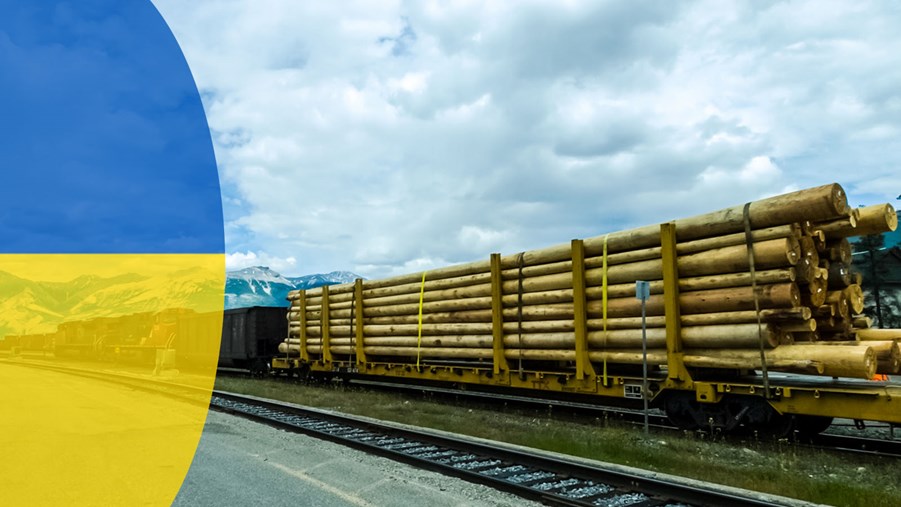
The war in Ukraine may affect the global economy for a long time to come, including the forest-based sector. The European market is particularly exposed. In the short term, the crisis will generate higher energy prices that increase the cost of harvesting and transportation of timber, as well as the production of forest-based products. In addition, the prices for wood-based products in Europe might rise. These are conclusions made by the Swedish Forest Industries Federation in relation to the on-going crisis.
"Most of Russian exports go eastward to China, which does not participate in sanctions against Russia. However, Russian exports to European markets are expected to fall. It is unclear how European wood-based industries will be able to handle a loss of five million cubic meters of timber annually, and the additional shortage of timber from Belarus and Ukraine", says Kerstin Hallsten, chief economist at the Swedish Forest Industries Federation.
Exports of Russian timber to Europe are disrupted
Russia is the world’s largest exporter of wood-based products. The country produces about 40 million cubic meters of wood-based products annually. In recent years, Ukraine has also increased its timber exports. European imports of wood-based products from Russia, Belarus, and Ukraine account for about 8 percent of total consumption in Europe.
"The uncertainties about how this situation will affect the supply and demand balance in Europe worry many companies in the wood-based supply chain, and rightly so. We have just come out of a period with disturbed supply chains and fluctuating prices due to the pandemic. Now we must assume that there could be new major changes in the global trading patterns for sawn timber. We will follow the development closely", says Mathias Fridholm, Director of Swedish Wood.
Transportation and logistics are essential and vulnerable
Early in the crises, Great Britain closed its ports to ships owned or operated by Russian interests. Some of the largest ship operators in the world have followed suit and refused to call at Russian ports.
"Transportation and logistics are where the Ukrainian crises could harm the forest-based industry as a whole, regardless of what EU country, product or material is concerned. Effective transportation is indispensable for the forest-based industry to function", says Kerstin Hallgren.
The Swedish Forest Industries Federation warns of a labor shortage in the European transport sector, as many truck drivers are Ukrainian nationals. The situation is exacerbated by the implementation of the EU Mobility Package, which requires that drivers return to their home country every four weeks, and that trucks must return to country of registration every eight weeks. There are also indications of Baltic and Polish drivers also being called home to serve in emergency preparedness.
Energy prices keep rising
Most industries in the EU have been affected by high energy costs even before the war in Ukraine began. For the forest-based industry, the impact of the war on energy prices is most felt in countries of operations that rely heavily on Russian oil and gas. However, the disruption of Russian exports has spillover effects on energy prices across Europe, also in Sweden.
"In Sweden, electricity prices mainly affect mechanical pulping, which is electricity intensive. The Swedish chemical pulp mills, on the other hand, are mostly self-reliant on electricity and some even produce more electricity than they consume. Currently, electricity prices are compensated for by high prices for both pulp and paper products. If electricity prices keep rising, we will reach a threshold and sales of forest-based products will be affected", says Kerstin Hallgren.




